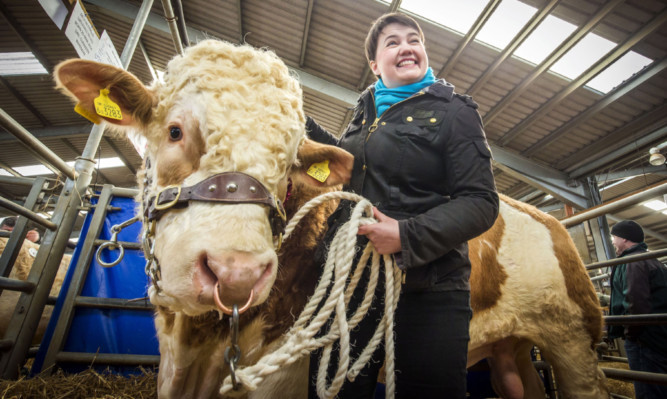After years of bitter political division in Scotland, there was a welcome sign over the weekend that there is one thing most of us can now agree on a second independence referendum should not be a priority for the Scottish government.
In a YouGov poll, a pretty conclusive 90% of respondents placed issues such as the NHS and the economy, education and immigration ahead of the constitution when asked what ministers should focus on after the May election.
Even among those who voted for the SNP in last year’s general election, just 19% said another independence ballot should be a priority.
The poll was commissioned by the Scotland in Union group, which lobbies to keep the UK intact and it is heartwarming for those of us who have long hoped the Nationalists would accept their defeat of September 2014 and get on with the job of running the country.
But the fact the vast majority of Scots would rather the government fixed hospitals and schools before trying to break up Britain presents problems for political leaders on both sides of the divide.
Nicola Sturgeon has not ruled out including a second independence vote in her party’s manifesto but nor has she ruled it in.
Ballot folly
She must know the folly of holding another ballot, with the nation’s finances far more precarious than they were in 2014 and almost half of Scots believing the country would have been worse off had it voted Yes.
If the might of the SNP failed to triumph 18 months ago, with an economic forecast based on oil at $110 a barrel, what chance would there be now, when it’s less than $30?
However, Sturgeon is under a great deal of pressure from grass roots supporters who joined the party in the wake of its 2014 disappointment and have never stopped clamouring for a referendum rerun.
Caught up in the momentum of the campaign, they still expect the SNP to deliver on nationalism just because it promised it would back then.
There is plenty of anecdotal and social media evidence to suggest that these “Yessers” are already disgruntled with the leadership over its caution and Sturgeon will not want to alienate them further.
She will have to keep the referendum subject alive, at least until after May 5 and leave her options open with some clever wording (most likely over the outcome of the EU vote) that doesn’t commit her either way.
However, it is also in the interests of Sturgeon’s opponents to ensure the referendum remains centre stage. Ruth Davidson, leader of the Scottish Tories, has benefited the most out of the Unionist cheerleaders.
While Labour has haemorrhaged votes to the SNP and the Lib Dems have disappeared who knows where, Davidson has become something of a rallying point for worried No voters.
Without exaggerating her party’s appeal in Scotland they came third in the last Holyrood and Westminster elections there is a chance that, under her energetic leadership, the Tories could overtake Labour.
To do this, she will need to secure a large turnout and persuade not just traditional Conservative voters but Labour and Lib Dem ones too, that she offers their best hope of seeing off the secessionist threat.
If she just talks about the flaws in health policy, or of Scotland’s deteriorating education standards, or even the price of oil, she won’t get very far.
Rubbishing the SNP’s record in office an easy target though that is did not hurt the Nationalists last May, when they won 56 of Scotland’s 59 seats in the Commons.
What is at stake
To harness the kind of voter passion that brought people out in their droves in September 2014, Davidson needs to remind them of what was at stake then.
If she can drum up anxiety over a neverendum and dangle before the electorate the awful prospect of perpetual constitutional navel-gazing from a reelected SNP government, she might just tempt Unionists from the other parties to jump ship.
In other words, she must attempt to recreate the essence of Better Together under a Tory banner, which will not be easy, of course.
There will always be a limit to the number of Labour and Lib Dem voters who would vote tactically to stop the SNP and there may be some who would sooner see a separate Scotland than a resurgent Tory party north of the border.
However, Davidson won’t be concerned about these. It is the moderates she is after, the people still reeling from the SNP onslaught on Westminster and alarmed at polls that continue to put the Nationalists in a commanding lead.
If she can convince them that there is a referendum bandwagon, she may also convince them that she is the only person to stop it.
